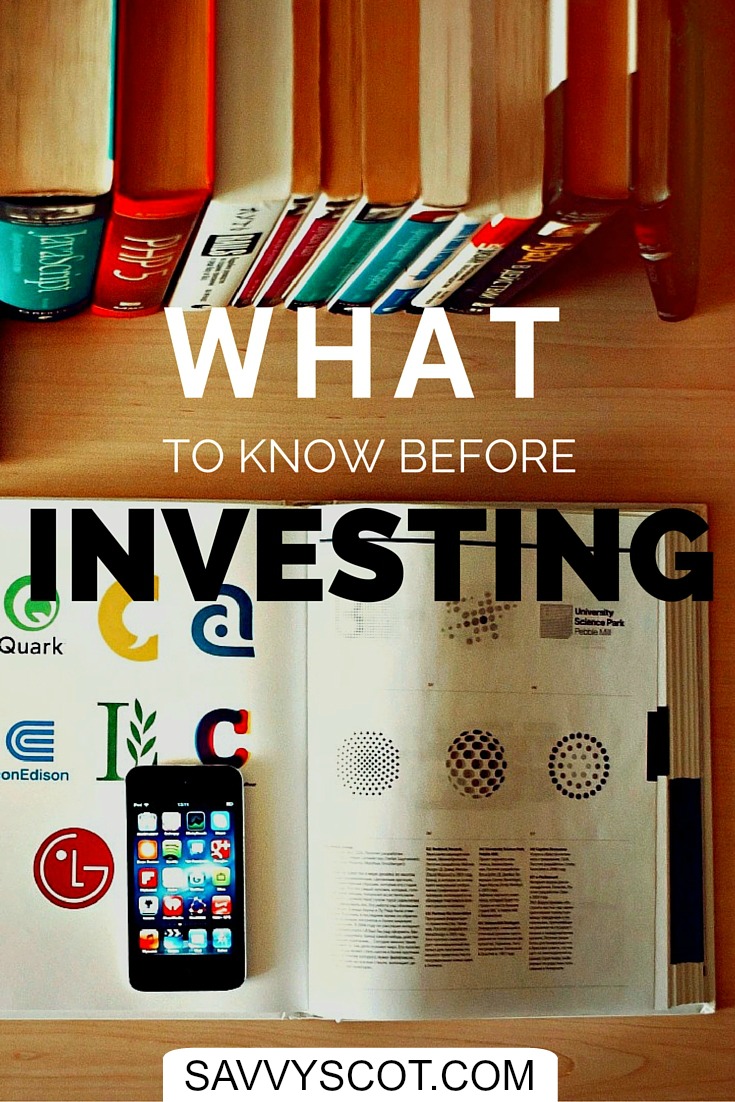Many people think investing is some risky game that’s foolish to play. Some people are scared of any talk about investing in the stock market. Some people think it takes great skill to invest in the stock market. Some people invest but they do so poorly. This blog post will tell you everything you need to know before investing. I will answer common questions, debunk myths and just plain get you ready to invest in the stock market. Let’s get going.
First of all, the stock market shouldn’t be intimidating. Most people invest actually. So therefore it’s kind of like driving a car. Most people are scared to drive at first. But they wouldn’t be scared if they thought logically. With mostly everyone driving, it can’t be that hard can it? No, it’s definitely not hard.
Most people invest but they do so through their employer plans. They opt for a simple investing strategy. What they usually do is pick a target date fund. Target date funds are a mixture of stocks and bonds. The older you get, the higher percentage of your money goes into bonds. That’s because bonds are safer than stocks. You can afford to invest in stocks while young for one main reason: If the market crashes, you have time for it to recover before you actually need the money. Remember. Ride the roller coast while young.
To get started investing, you first need money. Make no mistake, earning money will always be more important than investing the money. Without the egg, there is no chicken. Think about it this way. And yes I know this is back of the napkin math.
There’s a rule called the Rule of 72. This means that roughly every 7.2 years, you’re investment should double with the stock market. That’s really motivating to me. But if you work hard, you can surely double your income faster than every 7.2 years. So investing is powerful but earning and saving is more powerful. Investing is just icing on the cake.
The method of investing that I recommend is to get a low fee index mutual fund. Having low fees means you spend less having the fund taken care of. This is good. Because the only thing you can know for certain are your fees. Keeping them low is wise.
I recommend getting an index fund because an index fund tracks the market. If the market goes up, the fund goes up. I’ll take that rate. Historically, the stock market has always gone up in price. The US’s S&P 500 has risen nearly 12% historically.
Mutual funds are great because they’re able to gather up a bunch of stocks so you are diversified. If you’re an expert, being diversified may sound like a silly plan. But with investing, few are true experts. Investing is very similar to predicting the future. That’s not easy.
Once you buy one of these low cost index mutual funds, you’ll be asked a question. That is, do you want your dividends reinvested? A dividend is a portion of the profits (usually given quarterly) that you can take. You can live off these. Or you can reinvest them. If you don’t need the money, it’s smart to set them to automatically reinvest. That’s simple. It would be kind of dumb to take the dividends, only to put other funds into the stock later on. May as well keep things easy for yourself.
Now that you have your index mutual fund and you’re reinvesting your dividends, there are still a few other things to consider. It’s best to stick with an investing schedule. This works well so you don’t have to constantly remind yourself to invest money. It’s also taking advantage of the strategy called dollar-cost-averaging. That term means that you invest little bits of money at different times throughout the year. By doing that, you’re sure never to buy at a high and never see good returns. It’s best to spread out when you buy. Sure, you can try to time the market. You can put funds whenever you hear about a crash. I’ve tried doing that before. But the stock market may rise and rise before it crashes. What has happened to me is the markets rise for months straight without me investing. Then I’d hear about a crash. So I’d invest my saved money. But turns out, the stock prices were actually lower in the months prior to the crash, when I could’ve invested in the first place. With that said, I don’t recommend timing the market. Few people do recommend it.
Finally, make sure to report your income from these stocks. Even though you don’t plan on using the money, you may still have to pay taxes on certain portions. Be aware of the laws. A high rate of return looks great but if you don’t report it, you could be fined until your rate of return is pretty pathetic. Or worse yet, you could go to prison. Don’t try to stretch your luck by avoiding taxes. Be happy you’ve made a profit and share it with the people of your democracy.
Bio:
Will Lipovsky is a personal finance freelance writer and internet marketer. His most embarrassing moment has been saying to a Microsoft executive, “I’ll just Google it.” You can get in touch with Will at FirstQuarterFinance.com.


